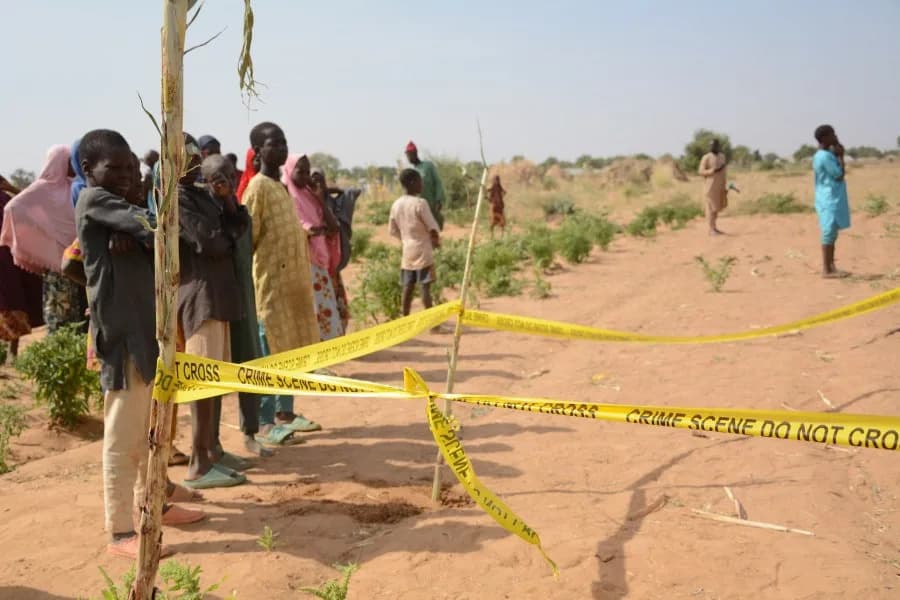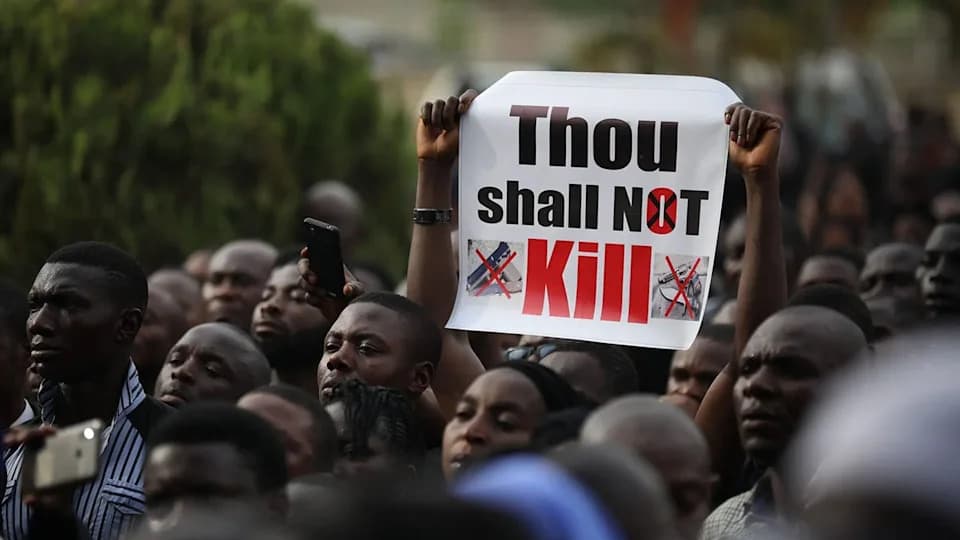Many Nigerians — both Christian and Muslim — rejected US threats of military strikes after reports of killings of Christians. Experts say the violence reflects complex, overlapping causes: farmer-herder clashes in the Middle Belt, a jihadist insurgency in the northeast and banditry in the northwest, affecting people across faiths. Political and diplomatic tensions, including a row over deportations and visa rules, have amplified the debate. Nigerian leaders urged religious tolerance and called for coordinated, locally led responses to insecurity.
Christians and Muslims in Nigeria Reject US Threats of Military Strikes, Urge Joint Response to Complex Violence

Nigerians from both Christian and Muslim communities pushed back against US President Donald Trump’s warnings of possible military action following reports of killings of Christians in the country. Africa’s most populous nation — roughly divided between a mostly Christian south and a largely Muslim north — is affected by multiple, overlapping conflicts that experts say claim victims across faith lines.
Complex causes behind the violence
Local leaders and analysts emphasise that the violence in Nigeria is driven largely by competition over land and resources, weak governance and poor rural policing rather than by a single, nationwide campaign of religious persecution.
Middle Belt: farmer-herder clashes
Plateau state — where Christians and Muslims have long lived side by side — has experienced repeated outbreaks of deadly violence, including major riots in Jos in 2001 and 2008. In recent years, clashes between mostly Christian farmers and Fulani Muslim herders over shrinking grazing land and resources have killed many villagers and razed entire communities.
“Christians are being killed, we can’t deny the fact that Muslims are (also) being killed,” said Danjuma Dickson Auta, a Christian community leader from Plateau.
Northeast and northwest: jihadists and bandits
In the northeast, Nigeria continues to battle an entrenched jihadist insurgency led by groups like Boko Haram; in the northwest, armed "bandit" gangs carry out kidnappings and village raids. Because much of the north is Muslim-majority, many victims in those conflicts are Muslim.
“Even those who sold this narrative of Christian genocide know it is not true,” said Abubakar Gamandi, a Muslim leader from Borno state.
International narrative and diplomatic fallout
Claims that Christians in Nigeria are uniquely persecuted have recently gained traction online among some right-wing groups in the US and Europe. Separatist groups in the southeast and outside lobbyists — including a US-based firm that has briefed congressional staff — have promoted the framing of "Christian persecution."
Analysts note that Washington’s heightened rhetoric may also be tied to a diplomatic row over deportations and visa restrictions after Abuja refused to accept some non-Nigerian deportees expelled from the United States. In response, the US tightened visa rules for Nigerians, a move that may have amplified tensions.
Washington’s comments and Nigerian responses
Trump wrote on social media that he had asked the Pentagon to draw up a possible plan of attack. Asked aboard Air Force One whether he was considering ground troops or air strikes, he replied: "Could be, I mean, a lot of things — I envisage a lot of things," adding: "They're killing the Christians and killing them in very large numbers. We're not going to allow that to happen."
President Bola Tinubu rejected that portrayal, saying religious tolerance is "a core tenet of our collective identity." His spokesman suggested that Mr. Trump’s blunt style might be intended to prompt a direct meeting to coordinate responses to insecurity.
Voices from Nigeria
Some Nigerian figures welcomed the attention as a spur to action against terrorists, while others warned against oversimplifying causes or portraying complex local conflicts as a single religious war. Religious and community leaders called for sober, coordinated approaches that address land management, policing, and local governance — not unilateral military intervention.
Conclusion: Nigeria’s insecurity stems from a mix of ethnic tensions, resource competition, jihadist insurgency and criminal banditry. Leaders across the religious divide urge responses that recognise these complexities and focus on coordinated, locally informed solutions rather than reductionist narratives or external military threats.
Help us improve.


































